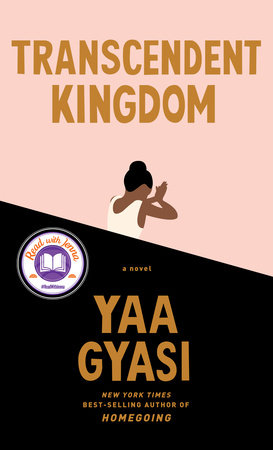Yaa Gyasi’s Sophomore Novel “Transcendent Kingdom” Explores Spirituality and Family

“Transcendent Kingdom” creates a layered portrait of American society. (Courtesy of Facebook)
“My pray-without-ceasing experiment had all but proven the impossibility of controlling my thoughts,” says the narrator of Yaa Gyasi’s second novel, “Transcendent Kingdom.” “I could control one layer, the most readily available layer, but there was always a sublayer lurking. That sublayer was truer, more immediate, more essential, than anything else.”
These sublayers of cultural intersections and personal struggles are beautifully narrated by Gifty, a grad student studying neuroscience at Stanford. Born into a family of immigrants from Ghana, Gifty and her older brother are raised by a single mother in Alabama, whose lover is an ocean away in Africa. As Gifty and her brother Nana grow up in the American South, Nana becomes addicted to opioids, setting in motion a story which creates a vivid portrait of the struggles facing contemporary immigrant families of color.
The layer effect of Gyasi’s narrative reveals how Nana’s death sends their mother into a violent battle with depression, leaving Gifty to care for her during their formative years. Gyasi’s elegant prose uses Gifty and her mother’s relationship to explore a wealth of issues, one of the largest being the tension between science and religion. Nana’s narration reveals Gifty’s hang-ups with religion as a female scientist; however, Gifty’s mother is a devout Christian, whose faith wanes as Nana’s addiction grows.
This tension between faith and science is repeatedly reintroduced through Gyasi’s elaborate structure, which weaves Gifty’s current psychological experiments on mice to her traumatic childhood memories. In a way, Gyasi is utilizing techniques similar to her debut novel, “Homegoing,” which follows the descendants of one African family throughout history, while also introducing quicker flashback and responsive dialogue, making the novel appear almost like a well-done miniseries.
While “Homegoing” may have been Gyasi’s foremost work on epigenetics and ancestral racial trauma, “Transcendent Kingdom” anchors these issues in the contemporary world. The interiority shown by Gifty when struggling with racism in America and her mother’s experiences is beautifully chronicled, and it holds an elaborately critical lens to American structures of faith, family and identity.
The most prominent display of this lens appears in the symmetry between Nana and their mother, whose individual experiences with racism confront the different ways racism manifests in American society for Black men and women. In examining these experiences, Gyasi creates a layered image of American society, one which is unafraid of blatant honesty and personal vulnerability. Much of this work feels extremely intimate, and Gyasi’s prose creates a personal reading experience that is an ideal facilitator for self-reflection and discussion.










